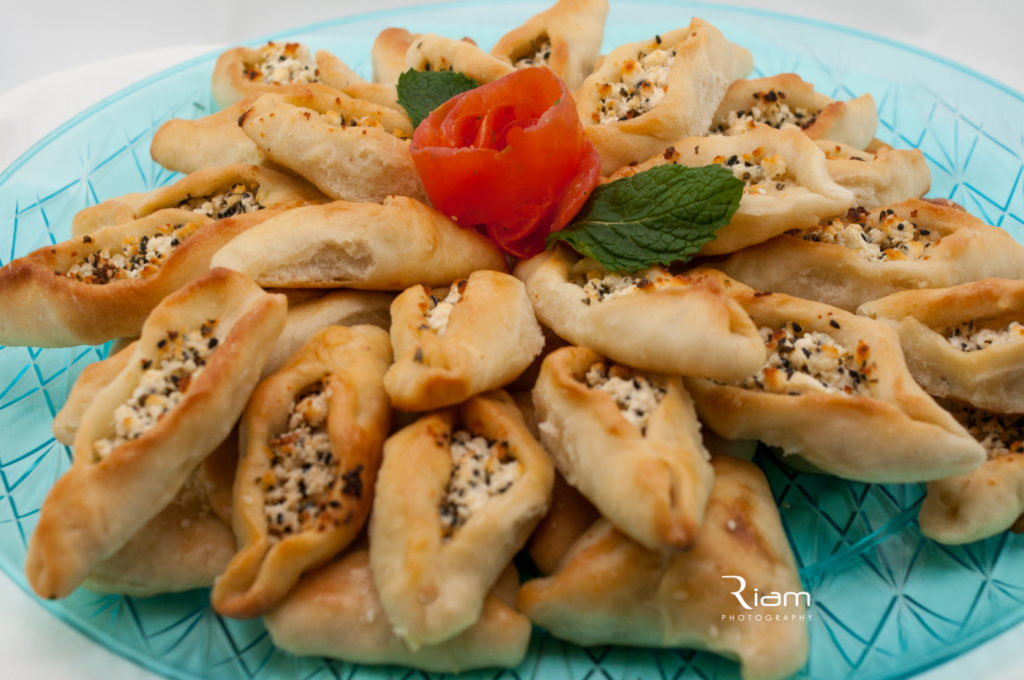Culinary Traditions Of Damascus
Share

Damascus, the capital of Syria, is not only one of the oldest continuously inhabited cities in the world but also a vibrant hub of culinary traditions that reflect its rich history and diverse cultures. The food of Damascus is a delightful blend of flavors, aromas, and textures, influenced by various civilizations over the centuries. This article will take you through the culinary landscape of Damascus, showcasing its key dishes, cooking methods, and the cultural significance of food in this enchanting city.
The Historical Context of Damascus Cuisine

The culinary traditions of Damascus are deeply rooted in its history. The city has been a crossroads for traders, pilgrims, and travelers from different regions, each contributing to its culinary repertoire. From the ancient Romans to the Ottoman Empire, various cultures have left their mark on the local cuisine. The use of spices, herbs, and cooking techniques has evolved, creating a unique gastronomic identity that is distinctly Damascene.
Key Ingredients in Damascene Cooking
Fresh Herbs and Spices

Fresh herbs such as parsley, mint, and coriander are staples in Damascene kitchens. Spices like cumin, cinnamon, and allspice add depth and warmth to dishes. The combination of these ingredients creates a vibrant flavor profile that is characteristic of Syrian cuisine.
Grains and Legumes
Grains, particularly bulgur and rice, are essential components of many meals. Legumes like lentils and chickpeas are also widely used, providing a hearty and nutritious base for various dishes. These ingredients not only reflect the agricultural practices of the region but also highlight the importance of plant-based foods in the local diet.
Iconic Dishes of Damascus
1. Kibbeh

Kibbeh is a beloved dish in Damascus, made from a mixture of bulgur wheat, minced onions, and ground meat, typically lamb or beef. It can be served raw, baked, or fried, and is often accompanied by yogurt or a tangy sauce. The preparation of kibbeh is considered an art form, with families often gathering to create this dish together.
2. Fattoush
Fattoush is a refreshing salad made with mixed greens, tomatoes, cucumbers, and crispy pieces of pita bread. The salad is dressed with a tangy sumac vinaigrette, which adds a zesty flavor. Fattoush is not only a staple in Damascus but also a symbol of the region's agricultural bounty.
3. Mujadara
Mujadara is a comforting dish made with lentils, rice, and caramelized onions. This simple yet flavorful meal is often served with yogurt or a side salad. Mujadara is a testament to the resourcefulness of Damascene cooks, showcasing how humble ingredients can be transformed into something delicious.
4. Shawarma

Shawarma is a popular street food in Damascus, consisting of marinated meat cooked on a vertical rotisserie. The meat is thinly sliced and served in a wrap with fresh vegetables and sauces. Shawarma reflects the city's vibrant street food culture, where locals and visitors alike enjoy this flavorful dish on the go.
The Role of Food in Damascene Culture
Family and Community
Food in Damascus is more than just sustenance; it is a means of bringing people together. Family gatherings often revolve around shared meals, where traditional dishes are prepared and enjoyed collectively. The act of cooking and sharing food fosters a sense of community and strengthens familial bonds.
Celebrations and Rituals
Food plays a significant role in various celebrations and rituals in Damascus. Festive occasions such as weddings, religious holidays, and family gatherings feature elaborate feasts that showcase the culinary heritage of the region. Dishes are often prepared in large quantities, symbolizing abundance and hospitality.
Cooking Techniques and Methods
Traditional Cooking Methods
Damascene cuisine employs various traditional cooking methods, including grilling, baking, and stewing. Many dishes are prepared over an open flame or in a clay oven, imparting a distinct flavor that is hard to replicate with modern cooking techniques. The use of these methods reflects a deep respect for culinary traditions and the importance of preserving them for future generations.
Modern Influences
While traditional cooking methods remain prevalent, modern influences have also made their way into Damascene kitchens. Contemporary chefs are experimenting with flavors and presentation, creating innovative dishes that pay homage to traditional recipes while appealing to modern palates.
Best Time to Experience Damascene Cuisine
The ideal time to visit Damascus and indulge in its culinary delights is during the spring and fall months when the weather is mild and pleasant. The vibrant food markets come alive with fresh produce, and local festivals often celebrate the region's culinary heritage.
Where to Enjoy Damascene Cuisine
Local Restaurants and Cafés
Damascus boasts a plethora of restaurants and cafés where you can savor authentic Damascene dishes. From family-run establishments to upscale dining options, there is something for everyone. Some popular spots include:
- Al-Nawfara: Known for its traditional Syrian dishes and warm ambiance.
- Bakdash: Famous for its delicious ice cream and desserts, a must-try after a hearty meal.
- Al-Balad: Offers a wide range of local specialties in a charming setting.
Street Food
Don't miss the opportunity to sample street food while exploring Damascus. Vendors sell a variety of snacks, including falafel, kebabs, and sweets. The bustling atmosphere of the streets adds to the overall experience, making it a memorable culinary adventure.
Conclusion
The culinary traditions of Damascus are a reflection of its rich history, diverse cultures, and the warmth of its people. From iconic dishes like kibbeh and shawarma to the communal aspect of dining, food in Damascus is an integral part of life. Whether you're a seasoned traveler or a curious foodie, experiencing the flavors of this ancient city will leave a lasting impression. So, pack your bags and prepare to embark on a culinary journey that celebrates the heart and soul of Damascus.
For those looking to visit, consider booking your accommodations and flights through the following links for a seamless travel experience: Hotels & Flights and Transfers. Enjoy your culinary adventure in Damascus!



